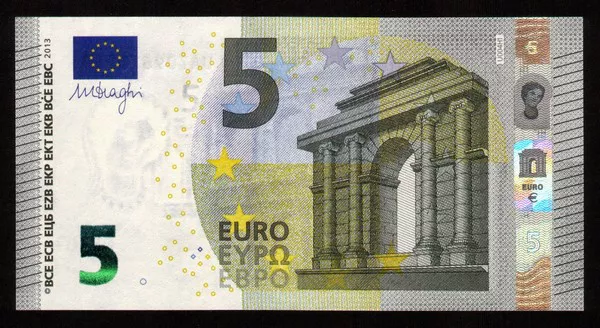As we move further into 2023, many investors are wondering whether the Euro will continue to rise or if it will experience a downturn. While predicting currency trends can be tricky, there are several factors that can give us an idea of what might happen in the Eurozone over the coming months. In this article, we’ll explore some of these factors and what they could mean for the Euro‘s value.
The Euro has had a volatile past few years, with ups and downs spurred by political instability, economic turbulence, and global events like the COVID-19 pandemic. In 2022, the Euro gained ground against most major currencies, including the US dollar, British pound, and Japanese yen. However, as we head into 2023, there are several reasons to believe that the Euro may not continue on this upward trajectory indefinitely.
Factors that Could Lead to a Euro Rise in 2023
Strong Economic Indicators:
The Eurozone economy is showing signs of strength, with growth rates surpassing expectations in recent quarters. This growth has been driven by increased consumer spending and investment, as well as a rebound in exports. If this trend continues, it could give the Euro a boost in 2023.
- a. Consumer Spending: As more people return to work following the pandemic, consumer spending is likely to increase. This will provide a boost to the Eurozone economy and could help strengthen the Euro.
- b. Investment: Many businesses are investing in new technologies and infrastructure, which could lead to increased productivity and profitability. This could ultimately translate to a stronger Euro.
- c. Export Growth: The Eurozone is a major exporter, particularly in sectors such as automobiles, machinery, and pharmaceuticals. If demand for these products continues to rise globally, it could drive up the Euro’s value.
Positive Political Developments:
Political stability is crucial for any currency, and the Euro has been plagued by political uncertainty in recent years. However, there are signs that this may be changing.
- a. German Leadership Stability: Germany is the largest economy in the Eurozone, and political instability there can have a ripple effect across the entire region. With Angela Merkel set to retire from politics in 2021, many investors were concerned about what would happen next. However, the election of Olaf Scholz as Chancellor has helped calm these fears.
- b. EU Fiscal Policy: The European Union has announced a large-scale fiscal stimulus package to help boost economic growth in the wake of the pandemic. If this policy is successful, it could lead to increased confidence in the Euro.
- c. Brexit: While Brexit has been a source of uncertainty for both the UK and the Eurozone, there are signs that the worst is behind us. The trade deal reached between the UK and EU in late 2020 has helped ease tensions and reduce the risk of a no-deal Brexit.
Factors that Could Lead to a Euro Fall in 2023
Inflation:
Inflation is a major concern for investors in any currency, and the Eurozone has seen a rise in inflation rates in recent months. This could potentially lead to a decrease in the value of the Euro.
- a. Supply Chain Disruptions: The COVID-19 pandemic has disrupted global supply chains, leading to shortages of goods and driving up prices. This could cause inflation to rise further in the Eurozone.
- b. Central Bank Policies: The European Central Bank (ECB) has been pursuing an accommodative monetary policy for several years, with low interest rates and quantitative easing. While these policies have helped support the Eurozone economy, they could contribute to inflation if left in place too long.
- c. Energy Prices: Rising energy costs can have a significant impact on inflation rates, and the Eurozone has seen a surge in energy prices in recent months. If this trend continues, it could contribute to a decrease in the value of the Euro.
Global Events:
While the Eurozone economy is showing signs of strength, there are several global events that could potentially impact the Euro’s value in 2023.
- a. US Economic Recovery: The US is the world’s largest economy, and its recovery from the pandemic could have implications for the rest of the world. If the US economy continues to strengthen, it could lead to a decrease in demand for the Euro.
- b. Political Turmoil: Political instability in other parts of the world, such as the Middle East or South America, could lead to increased volatility in global financial markets. This could impact the Euro’s value, particularly if investors view the Eurozone as a risky investment.
- c. Trade Tensions: Trade tensions between major global powers, such as the US and China, can have significant impacts on currency values. If these tensions escalate in 2023, it could lead to a decrease in demand for the Euro.
Conclusion:
In conclusion, there are several factors that can impact the euro’s performance in 2023, including macroeconomic conditions, political developments, and expert predictions. While some experts are bullish on the euro’s prospects, others are more cautious. Ultimately, the fate of the euro in 2023 will depend on a range of complex and interrelated factors, making it difficult to predict with certainty. Investors and traders should approach the euro with caution and stay informed about the latest news and trends in the global market.
Related Topics:



























